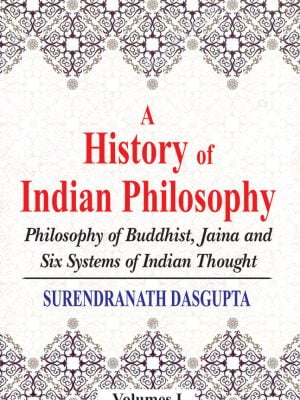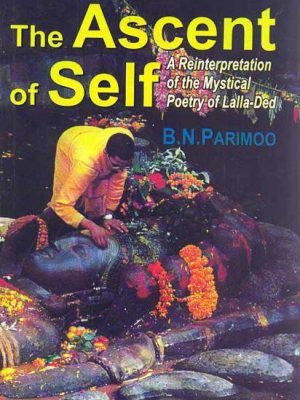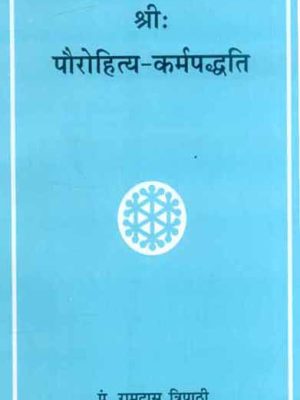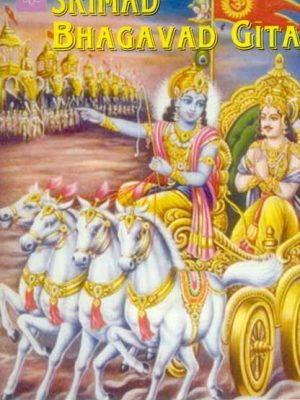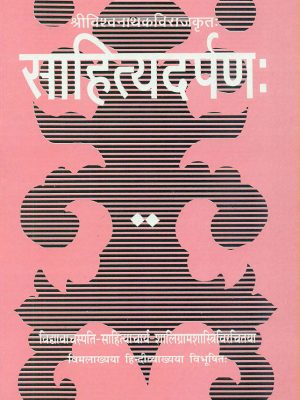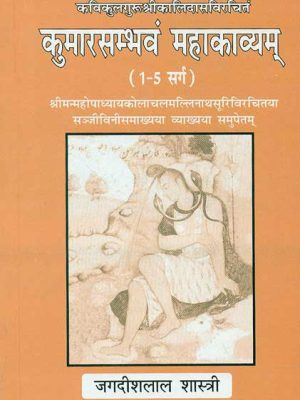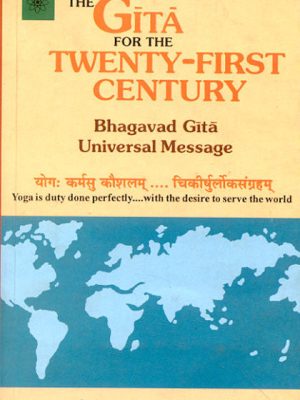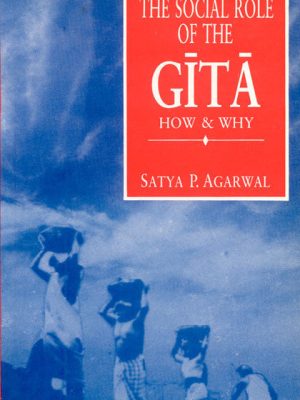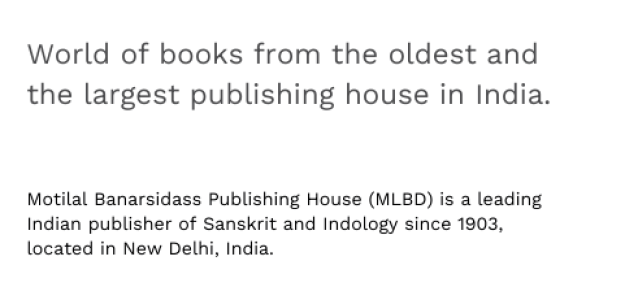
Motilal Banarsidass Publishing House
-
₹3,045.00
A History of Indian Philosophy (5 Vols.)
₹3,045.00 -
-
-
-
-
Srimad Bhagavad Gita
Srimad Bhagavad Gita presents “The Sermons from the Illustrious Lord Krsna to Arjuna,” compiled by the great ancient seer, Vyasa. Here is a rendering of Srimad Bhagavad Gita into English. While translating from Sanskrit into English, the author has spent about ten years in first realizing and then choosing the exact equivalent English words for translation so that the beauty, substance, meanings, dignity and grace of the original is not disturbed. Though the melody and magic of the verses is difficult to recapture in another medium, yet the author has tried his utmost to bring it in its best. To feel the dignity of phrase and the intensity of utterance, the author has given the text in Roman script so that those who know Sanskrit can enjoy its fullness while pondering over in its original, whereas others who do not know Sanskrit also get a fairly correct idea of the spirit of the poem. After putting up the text in Roman, it has been rearranged to facilitate the meaning of the verse. Then appear the word-for-word meaning and lastly the verse has been translated into English as exactly as possible so as not to deviate at all from its original.
Review(s)
About the Author(s)
Kailash Nath Kalia was born in Talwan (Punjab) and became increasingly interested in Indian philosophy during his active participation in the struggle for Indian independence. In 1950, he joined the Vishveshvaranand Vedic Research Institute (Hoshiarpur, Punjab), serving as its Assistant Director. In 1966 he moved to the United Kingdom and founded the Vivekananda Centre, a charitable organisation whose ethos allied service to spirituality. The Bhagavad Gita was fundamental to the author’s lifelong charitable work and service. He believed that the Gita’s inspirational teachings provided spiritual guidance for the individual and enabled mutual respect and understanding between people. Kailash Nath Kalia passed away on June 23, 1989. This book has been prepared posthumously from the manuscript he left behind. It is hoped that this work will help to disseminate the Gita’s message of universal harmony and spiritual enlightenment and so fulfil his cherished wish. *The author’s proceeds will be donated to charity.*
₹395.00Srimad Bhagavad Gita
₹395.00 -
-
-
Gita For The Twenty-First Century: Bhagavad Gita Universal Message
This latest version of Bhagavad-Gita (with slokas in Sanskrit and commentary in English) explains how the message of social service has been derived from this universal scripture. Written in a simple style, it will enable common people including high school students) to obtain a clear understanding of the teachings of the Gita so that they can work efficiently for the good of the society (and for their own good too). Keeping in mind the inter-connected nature of the various chapters of the Gita, ample cross-references are given in this book to help the readers identify the main points of this scripture’s basic message. Furthermore, a ten-point summary of this message is also made an integral part of the last chapter, in response to the feedback received from readers who had gone through an earlier draft of this book.
Review(s)
About the Author(s)
Dr. Satya P. Agarwal is a Social Scientist. His academic honours include five gold medals and numerous merit scholarships and research fellowships at various universities. The Governor of the State of Maryland conferred upon him “The Governor’s Citation”, in recognition of his pioneering books as also his contribution to social service. He is author of several books besides the present one which are widely acclaimed and appreciated by the discerning readers. Other honours conferred on him include: (i) Kunti Goyal International Award, (ii) Special Award of Manas Sangam and (iii) International Tulasi Award.
₹195.00 -
The Social Role of the Gita: How and Why
Although the Bhagavad-gita has traditionally been regarded as a poem of primarily religious significance, Dr. Agarwal shows that with the proper interpretation its message may be ransformed into a set of practical ethical guidelines. This practical aspect of the Gitaês teaching, its insistence that involvement with the world is an ethically correct function of human behaviour, is the focus of this book. That involvement with the worldês is expressed by the term ‘Lokasamgraha’. The term covers a multitude of social and political forms of behaviour and attitudes of mind and is perhaps more central to the meaning the Gita should have for modern man than its traditional other-worldly interpretation.
Dr. Agarwal has examined the various ways in which India has reacted to the impact of many powerful foreign influences over the past two centuries. He has done so by studying the lives and the activities of select Hindu thinkers who through their writings and their ways of life showed their awareness of a need to preserve an Indian identity. All of them undertook to define these differences and thus established their views on what might be acceptable alternatives for India and the Indian genius vis-a-vis those principles and customs that run counter to the Indian tradition. But they were not unanimous in either their conclusions or the strategies they devised for attaining their common goal. The author has concentrated on the role the Bhagavad-gita has played in the lives and works of these thinkers.
Review(s)
About the Author(s)
Dr. Satya P. Agarwal is a Social Scientist. His academic honours include five gold medals and numerous merit scholarships and research fellowships at various universities. The Governor of the State of Maryland conferred upon him “The Governor’s Citation”, in recognition of his pioneering books as also his contribution to social service. He is author of several books besides the present one which are widely acclaimed and appreciated by the discerning readers. Other honours conferred on him include: (i) Kunti Goyal International Award, (ii) Special Award of Manas Sangam and (iii) International Tulasi Award.
₹395.00
